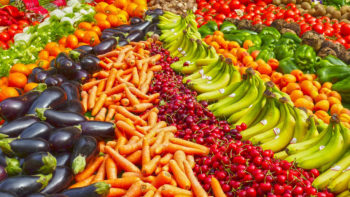One of the most confusing things we face in the modern world is what to eat. Michael Pollan wrote a whole book about it called “The Omnivores Dilemma.” We have not only so much food, but information at our fingertips that it can be a difficult challenge to feel like we’re making the best choice for ourselves.
The most important thing to remember when experimenting with the best way to eat for you is not to fall for the propaganda. Many of the diets you routinely hear about—vegetarian, vegan, keto, carnivore, mediterranean, Paleo, low-carb, intermittent fasting, etc.—tend to be compared, for proof of their effectiveness, to the (aptly named) SAD, or Standard American Diet.
While this is fine for comparison’s sake if what you’re eating is the SAD, it doesn’t provide a very accurate picture for comparison if you’re already eating some form of specialized or restricted diet already. Now when I write “restricted,” try not to hear “diets are so restrictive!” What I simply mean is that compared to the SAD (which doesn’t really have any restrictions), all of these other diets restrict something, whether it’s meat, calories, when you eat, or plants.
What’s most important in this conversation, and what often gets missed and pits well-intentioned people against each other, is that if you’ve chosen and are adhering to any of these diets, you are in a special group already. Not only are you eating (much) better than the average American, you are probably also paying a greater amount of attention to exercise, stress reduction, not smoking, your sleep, and any number of other components of living a healthy life.
It doesn’t do any good to compare, say, vegetarianism to the Standard American Diet if what you’re trying to say is that the SAD is the “meat-eating diet.” Because the SAD, while it includes meat, does not have meat at the root of its pathology. Most calories in the SAD come from flour-based desserts like cakes and donuts, bread, chicken, soda, pizza, alcohol, pasta, Mexican food, beef, and ice cream. If you removed chicken and beef from that diet, do you think you’d have a healthy version of a set of eating principles? Far from it.
By the same token, Paleo compared to the SAD is no reason to say that Paleo is healthier than keto, or vice versa.
In a study of 7th Day Adventists (a very healthy population), the difference in colon cancer risk between meat eaters and non-meat eaters was calculated at 0.16% over six years. The vegetarians had a 0.38% risk and the meat eaters had a 0.54% risk. What you’ll be told is that there a 42% greater risk of colon cancer for meat eaters than non-meat eaters, when in reality the difference is so small that no one can really fairly attribute the difference to meat. What they should tell you is that the difference is so small that it’s barely worth talking about.
For many people, for many reasons (both known and unknown to them), a certain diet just calls to them. Maybe it feels ethical, maybe it feels clean, maybe all their friends are doing it and all their friends are healthy as all get out. That’s not really the important thing. What matters is that if you are the kind of person who is willing to clean up their act when it comes to the foods they put in their mouth, you’re the kind of person who stands head and shoulders above the rest when it comes to health outcomes. You’re weighing actions against outcomes.
That doesn’t mean that once you’ve made a choice and stuck with it for a while you won’t discover there is an even better choice for you for very specific results-based physiological (or psychological) reasons. You may discover even after you’ve cleaned out most SAD components that you are allergic to eggs or soy or tomatoes. You might find that you need to cut out late-evening eating. You might find out that you need more protein or calories or fiber. But you’re likely never going to see that against the backdrop of ice cream and donuts on the regular.
I’ve said for a long time that it really bums me out that very health-minded people who want the best for their health and the health of the people on this planet argue with each other over specifics like these when there are much better things for us to turn our attention towards. Wouldn’t it be something if the vegans and the keto dieters of the world united against the processed food industry and the sway it holds over the average person? Rather than disagree with each other?
Bottom line—eat like a healthy person. What do I mean by that? Well, remember that list (cakes, donuts, soda, etc.)? Cut out as much of those as you possibly can. Eat things that were clearly recently alive and that still look like what they looked like when they were alive. And even if you eat a donut on Sunday morning, that doesn’t make you an all-American donut eater. If you’re wise about your choices, as a rule, you’ll soon discover where you can take liberties.
Also, compare notes with other people who are eating healthy. See what your friendly neighborhood caveman has to say about how Paleo is going. Ask your vegan friend what benefits they’ve seen since they’ve stopped eating meat. Find out how hard it is to fast for short periods of time and if it seems worth it. Rather than burying your head in the sand of what you’ve decided is the “best,” you may find that ultimately your diet is your own and what is best for you doesn’t have an “ism” at the end of it, but is simply what makes you feel energized, healthy, and whole.





